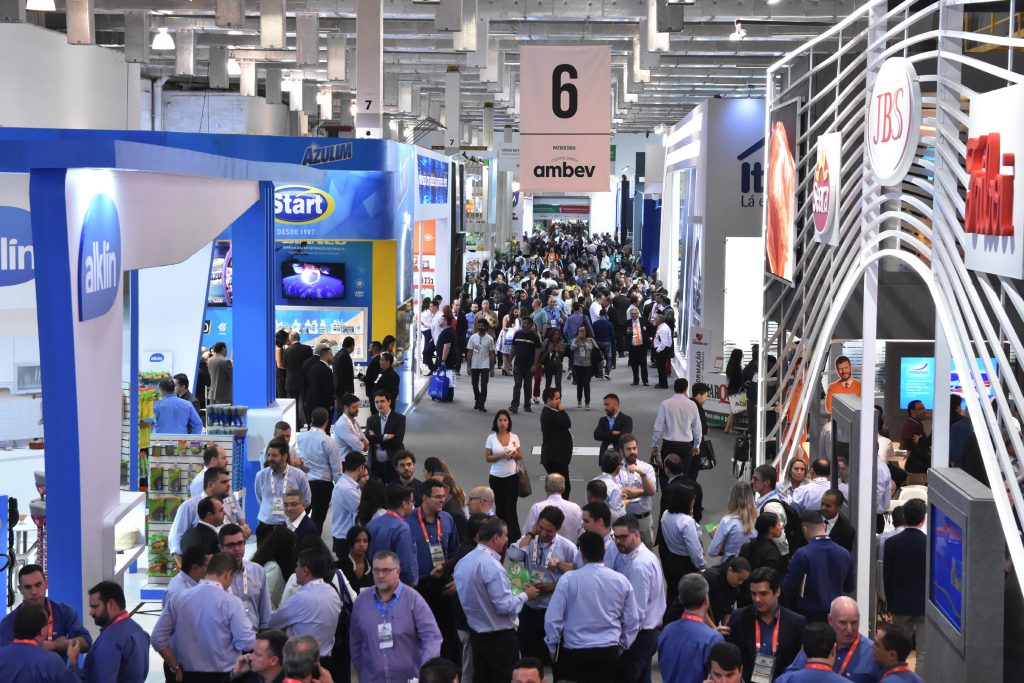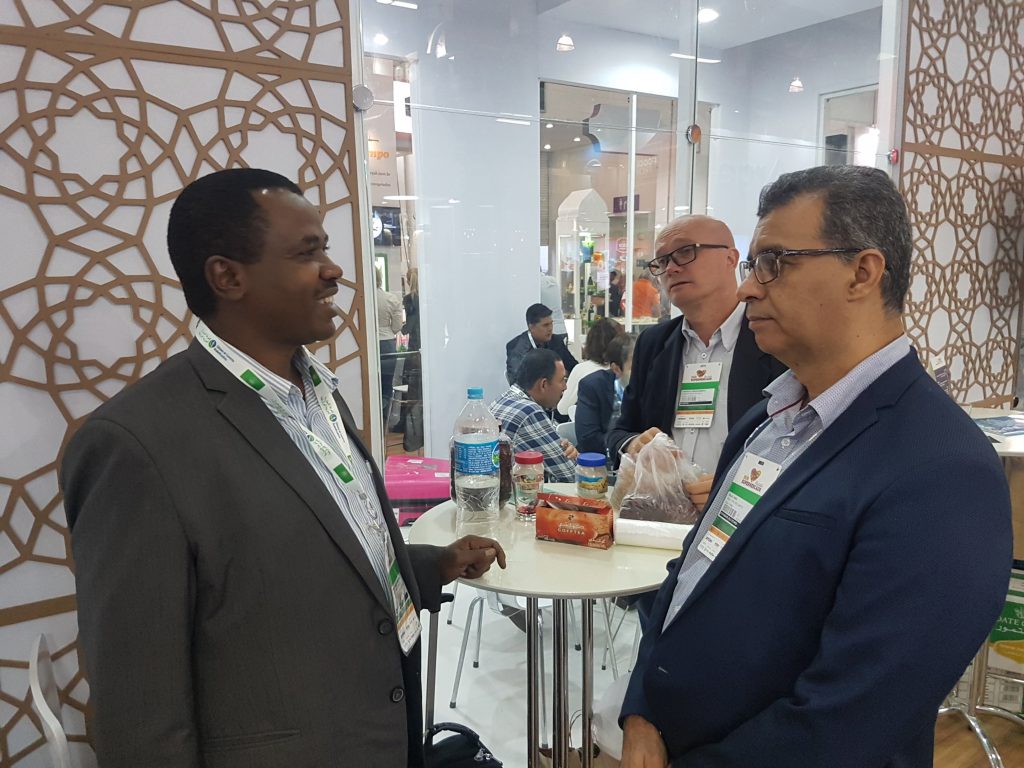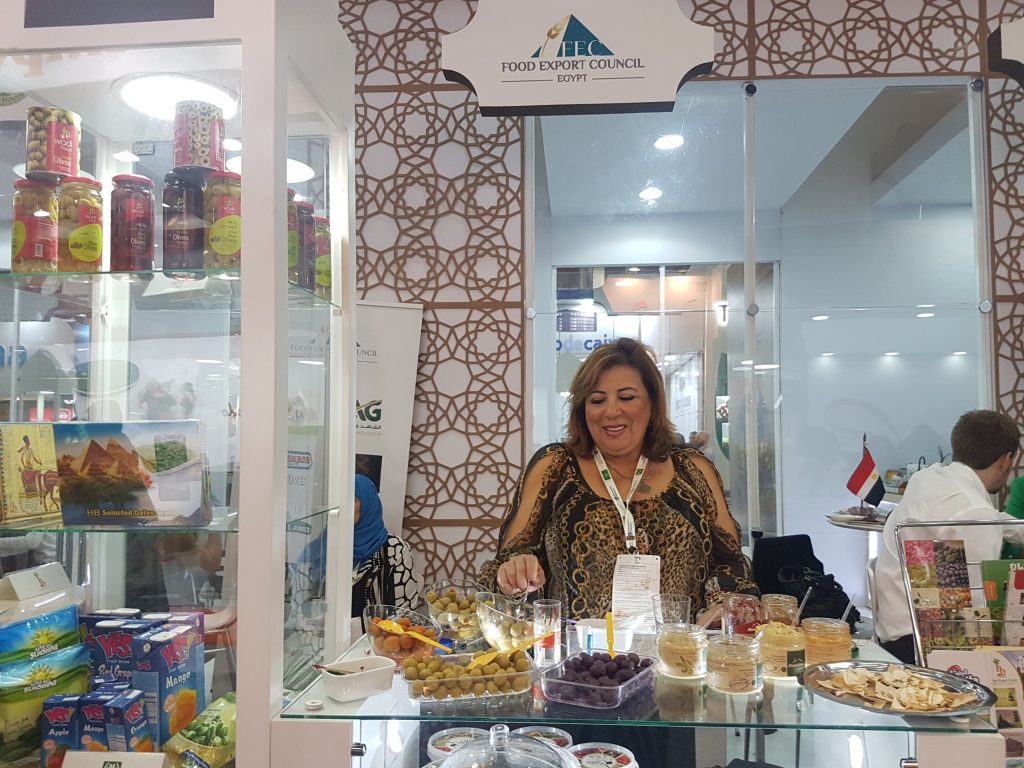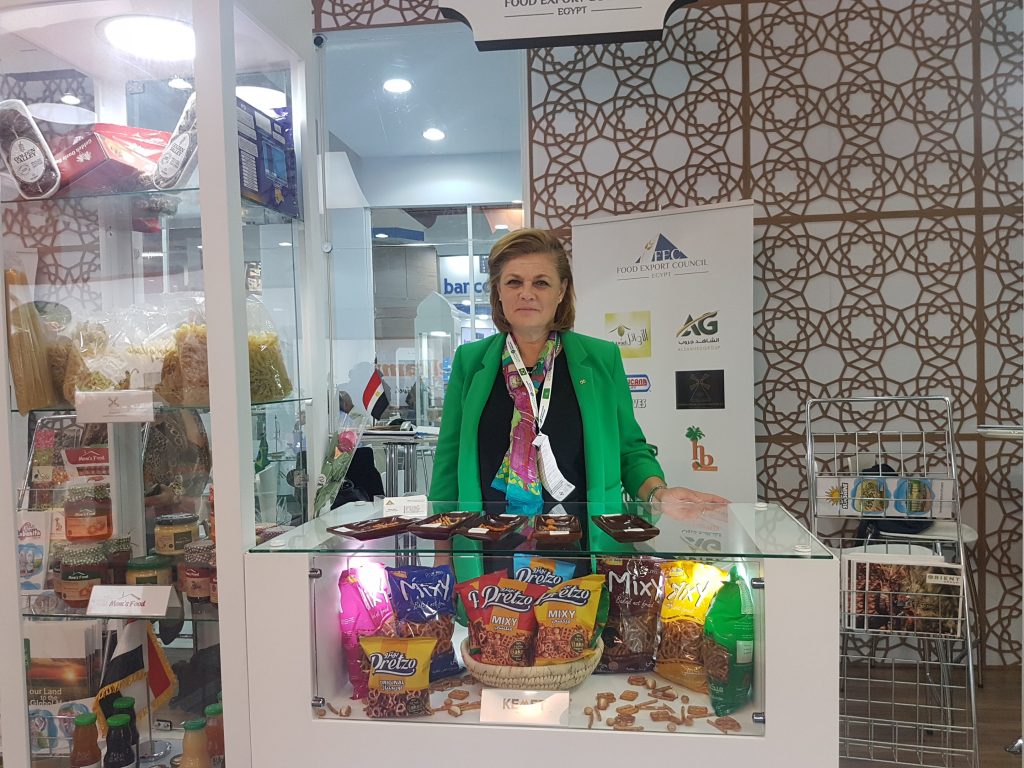São Paulo – The leading supermarket industry show in South America, APAS Show, ended this Thursday (10) with great expectations for the 25 exhibitors in the Arab Brazilian Chamber of Commerce stand, from Egypt, the UAE, Lebanon, Sudan and Tunisia.
Sudan’s Khalid Ombada, the CEO with Santos Import & Export Enterprises, said he had meetings over the event’s four days and was in talks with Grupo Vila Ervas, a Brazilian functional food group with nationwide reach. The conglomerate’s director, Célio José, tried out Sudanese hibiscus tea and took away samples of the plant and gum Arabic. He said the deal is all but closed. “I have been working with hibiscus for a very long time now. We work with the dried variety and we also make soluble tea. Khalid is also introducing me to his gum arabic, which we use in our products. We are negotiating, it’s a two-way street,” said José. According to Ombada, what sets Sudan apart is the fact that its soil is more mineral-rich than Nigeria’s, where hibiscus is also grown.
Egypt
Egypt’s Special Food Industry International (SFII) already sells olives in Brazil. Its managing director Yomna El Sheridy said this was the company’s first time at the APAS Show. “This is my second trip to Brazil and my first time at APAS. We already export to São Paulo, Santos and two other Brazilian cities via importers and direct to emporia.” Besides increasing sales to Brazil, she expects to start selling to Uruguay and Argentina as a result of the Mercosur-Egypt free trade agreement.
To her, the language barrier is the greatest obstacle to do business. Her opinion is shared by her fellow citizen Nihal Said, general director of Kemet for Natural Food, a company specialized in pretzels, snacks and sweets. This is Said’s first visit to South America, and she was surprised with her experience here. “I didn’t expect an expo so large and with this turnover, and it gave the opportunity to get to know the taste of Brazilians for us to adapt our products; we also made many contacts, it was a very positive experience to us,” she said. Kemet exports to over ten countries, among them South Africa, New Zealand and some in the Middle East. “We met with a supermarket and have another scheduled meeting for tomorrow (Friday, 11); it has been very good, and the Arab Chamber have shown great support.”
Mom’s Food, an Egyptian brand of pasta, sauces and juices, was also visiting Brazil for the first time. Riham El Aasar, the brand’s director general, said that the company, despite having been founded only two years ago, already exports to four countries: UAE (Abu Dhabi), United States, United Kingdom and Palestine. To her, the expo was great to get to know the market and understand better how it works, from the prices until what is and what is not accepted by Brazilian consumers. “We found out that our strength here are the pasta and sauces, that the juices don’t have much room; we already visited a supermarket and will visit another one tomorrow (Friday), we are very optimistic,” said Aasar.
The Arab stand
UAE companies also assessed as positive their experience at the APAS Show. They have made important contact and should sign deals soon, but they wouldn’t disclose the names of potential partners. Maxifour’s national sales manager (Lebanon and Brazil), Alex Manjabosco, said that he’s been negotiating with two companies from Rio de Janeiro, one from Santos, and other five from Rio Grande do Sul and Minas Gerais, and that there was a strong interest from small retailers from São Paulo state, from Sorocaba, São José do Rio Preto and Itatiba.
For the Arab Chamber’s president, Rubens Hannun, it’s important to continue the negotiations that began at APAS Show. “The role of the Arab Chamber is to support the Arab companies, doing the mediation so they can sign good deals and return next year,” he said. To him, what stood out the most at the expo was the business maturity shown by the Arabs, who came in larger numbers and brought representatives of their brands. “They are enthusiastic, seeing good results, that they were well-accepted in the market; to gain experience is really important and they, without a doubt, are very excited to return to the next trade expos,” he concluded.
Translated by Gabriel Pomerancblum and Sérgio Kakitani









